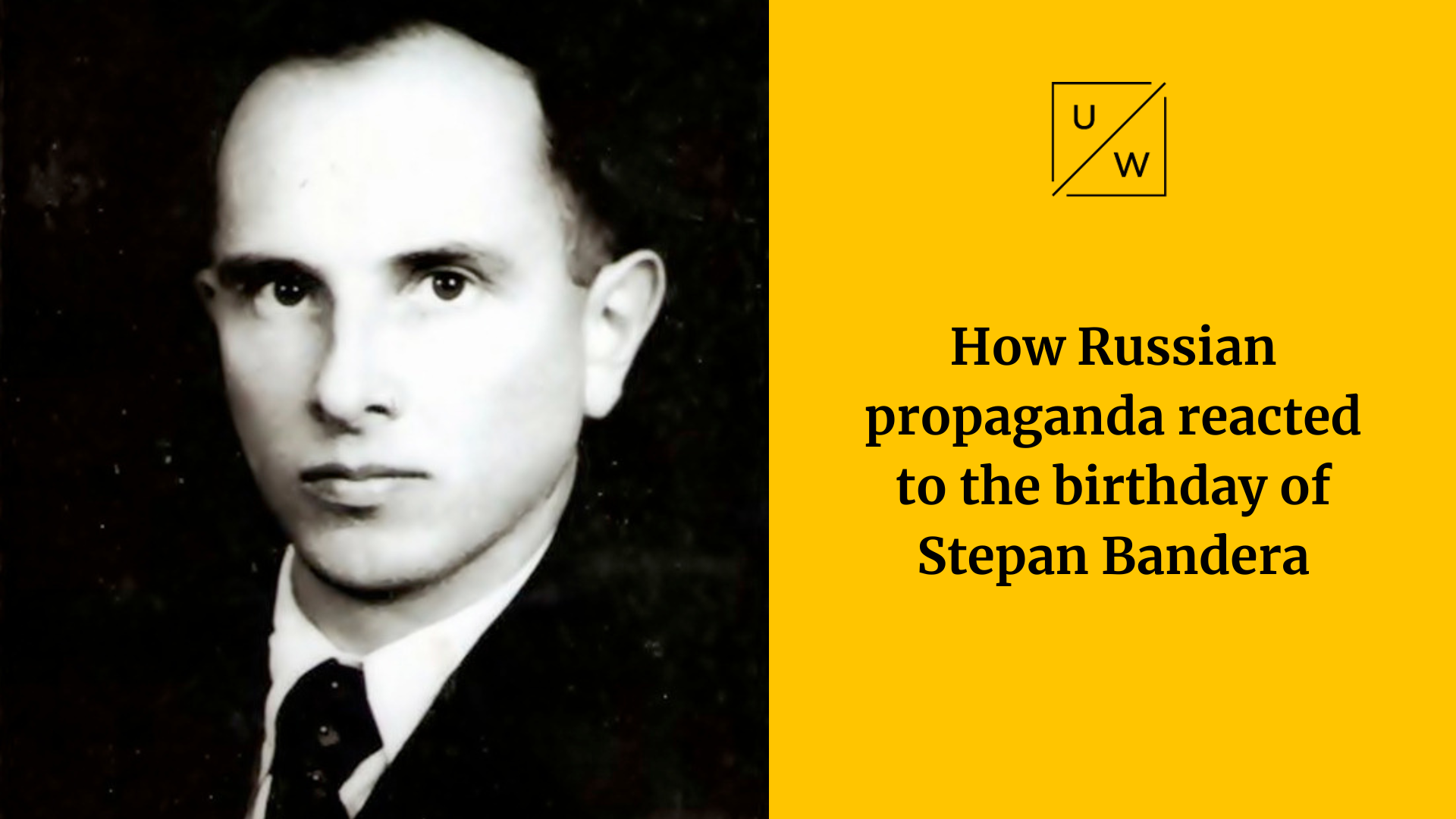
As he has served as a basis for the creation of Russia's narratives about "neo-Nazis in Ukraine." Though this message is not new and has been used for many years, Russian propagandists always pick it back up on 1 January, Stepan Bandera`s birthday, to discredit Ukraine and repeat their messages about "Nazism" in Ukraine.
This year was no exception. Russian propagandists began to repeat their old-new narrative about "Nazism" in Ukraine in context of Stepan Bandera and his legacy. However, it was expanded by new messages this year. After the beginning of the full-scale war on 24 February 2022, Russia has aimed to show Ukraine as a "failed terrorist state" to legitimise the invasion and the war crimes that have accompanied it. The Ukrainian government and Ukrainians were thus labelled as "supporters of Nazism" that deserve physical extermination and further "denazification" of Ukraine by Russia.
Moreover, Russian propagandists tried to appeal to emotions in the context of "truly Russian" symbols that "are under attack in Ukraine." Thus, their messages about "nazism" in Ukraine were reinforced by claims of "desecration" of Russian monuments, history, and faith in Ukraine and demands for revenge.
Another essential point here is the Russian attempt to foster a narrative about conflict between Poland and Ukraine by manipulating history. While Ukraine has tried to gain help and support from numerous international partners and allies, Russia has been trying to undermine it with "traditional" methods of lies and propaganda or, at least, by creating the illusion that this support is decreasing because of "Nazism" in Ukraine.
Russian propagandists also didn't neglect to accuse the West of "supporting Nazism in Ukraine" in order to strengthen general anti-Western attitudes in Russia and present Russia as the only powerful state that opposes "modern Nazism in the world".
In general, the reaction of the Russian propaganda on the birthday of Stepan Bandera was quite "traditional:" they accused Ukraine of "Nazism," attempted to create conflicts between Ukraine and its allies, and called for attacks on Ukrainian cities under fictional pretexts. While the whole world is developing and remembers the past tragedies, Russia is stuck in past narratives and continues to legitimise war crimes in Ukraine by manipulating history.
